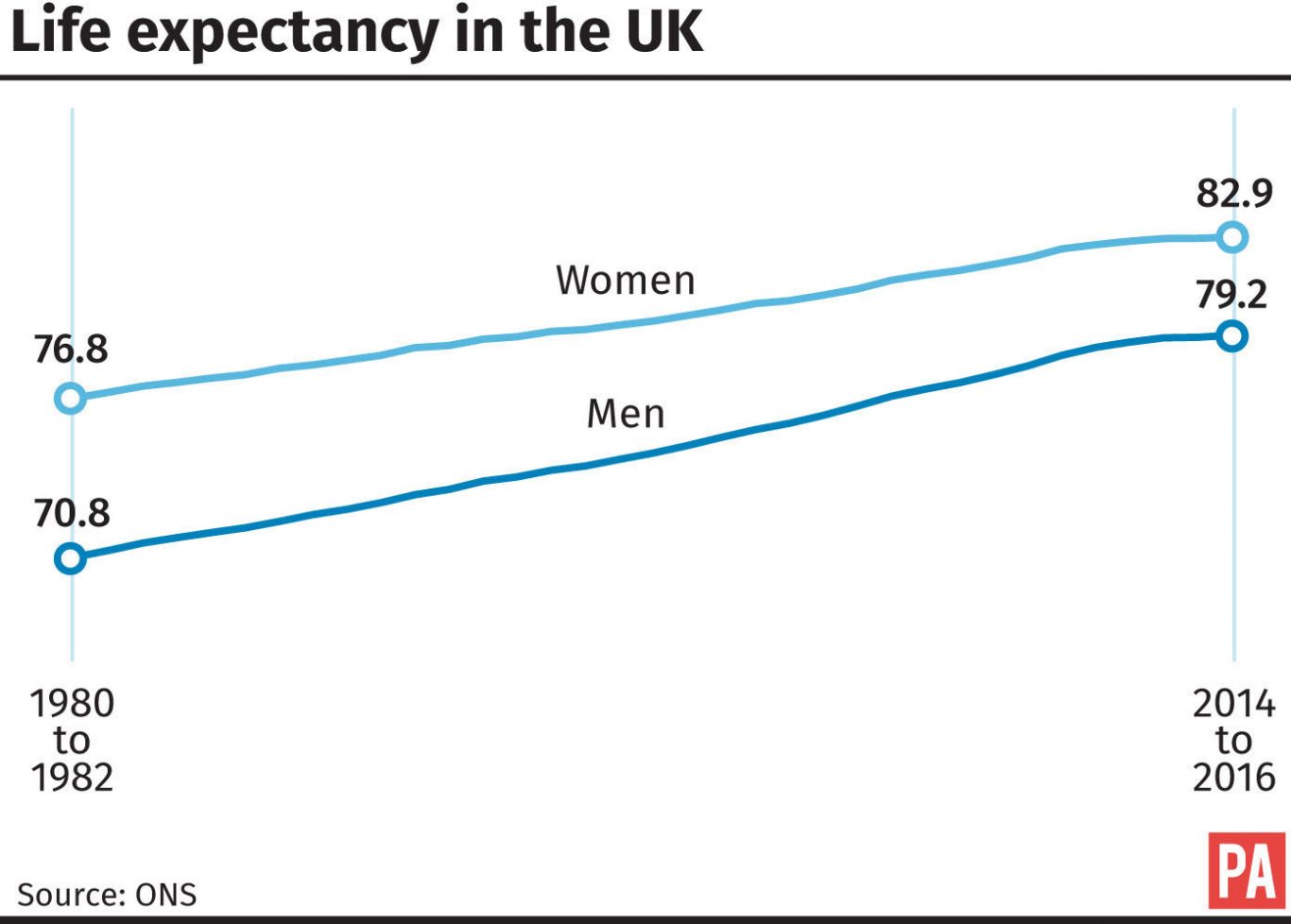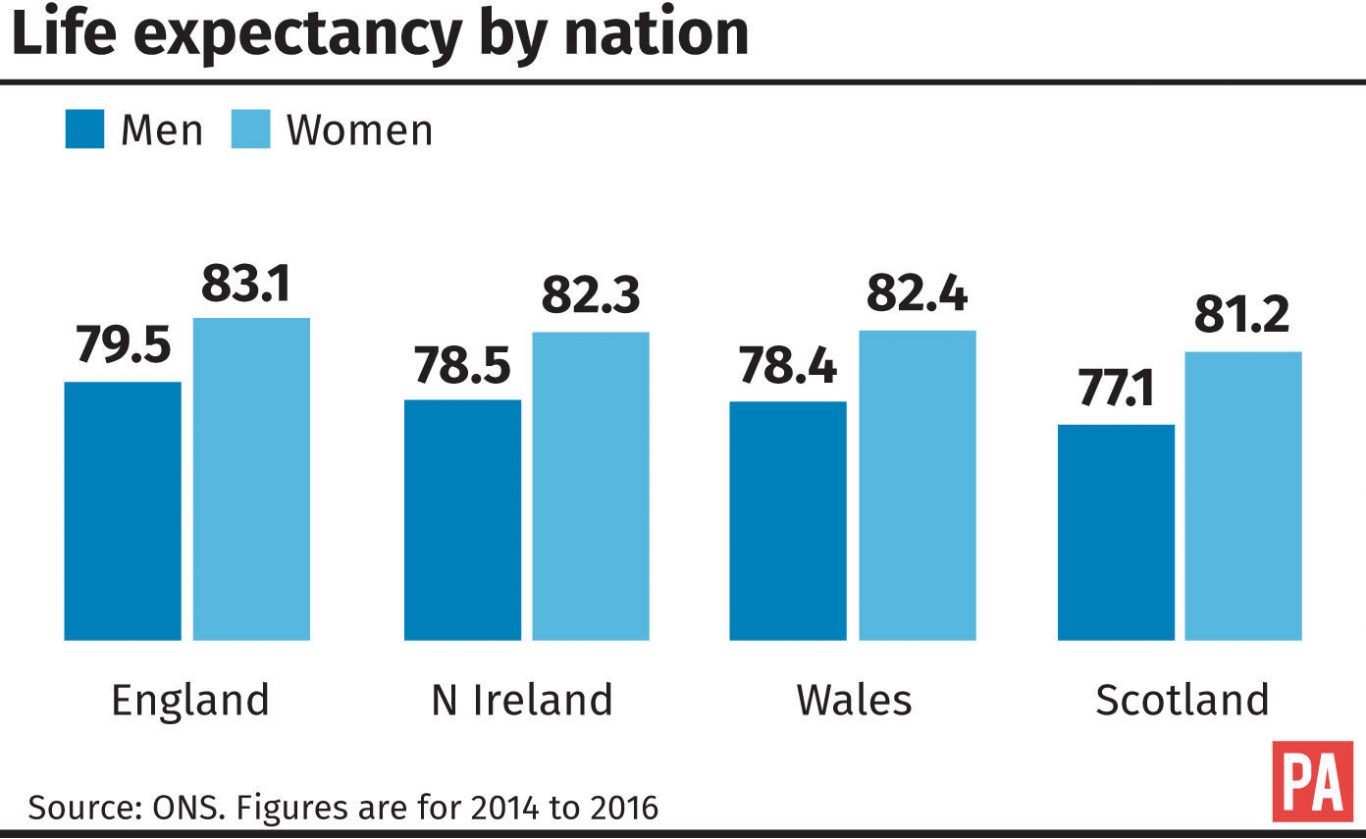UK life expectancy increases slightly, although progress slows
The increase amounts to around a month more for men and around a fortnight more for women compared with the previous year.

Life expectancy in the UK has increased slightly for both men and women – although progress is slowing, new figures show.
A girl born between 2014 and 2016 is expected to live until 82.9 years old, whereas a baby boy could see 79.2 years, an increase of 0.1% on 2013 to 2015, the Office for National Statistics (ONS) found.

Males born in the same two-year period have a 21% chance of living until 90, while a female has a 32% chance of becoming a nonagenarian.
Currently, a 65-year-old man can expect to see a further 18.5 years of life, whereas a woman of the same age can expect to live a further 20.9 years.

The latest increase amounts to around one month more for men, and around a fortnight more for women compared with the previous year.
ONS Statistician Sophie Sanders said: “The rate of increase in life expectancy in the UK has slowed in recent years.
“In 2014 to 2016, improvements in life expectancy were higher than in 2013 to 2015, although they remained very slight with life expectancy at birth increasing by 0.1 years for both sexes to 79.2 years for males and 82.9 years for females.”
England showed the highest life expectancy with 83.1 years for women and 79.5 for men, followed by Northern Ireland, Wales and Scotland with the lowest on 81.2 for women and 77.1 for men.
The estimates are based on if mortality rates seen in the measured period are maintained throughout the individual’s life.
The figures come after a leading academic warned earlier this year that life expectancy at birth was stagnating.
Professor Sir Michael Marmot, director of the Institute of Health Equity at University College London, called for an urgent examination into life expectancy which he said had “ground to a halt”, and expressed concern at the UK’s “miserly” spending on health and social care.
Figures show that the increase in life expectancy between 2010-2012 and 2014-2016 was slashed by more than half. However, the ONS suggested the slowdown could be down to a realisation of efforts to improve life span, such as cutting down smoking.
The gap between men and women is steadily narrowing, having dropped from 6 years in the early 1980s, to 2.7 years in the latest figures.





